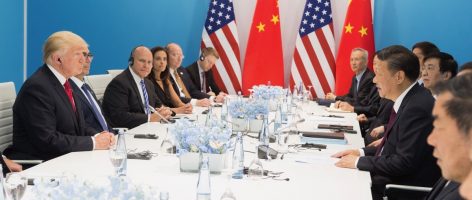
Germany’s Budget Surplus: Is Too Much of a Good Thing a Bad Thing?
Many who are familiar with Germany and German culture know that saving money and only spending money that one has is a very German trait. Only 36 percent of Germans …

U.S. Trade Policy: Clearing the Brush – or Pulling up Stakes?
The Trump administration has been in office for a little over a year now, and it is becoming clear there are two ways to view its approach to trade policy. …
Looking at Transatlantic Relations from the American-German Situation Room
I spent four weeks from late August to late September 2017 in the American-German Situation Room (AGSR), working to find out what direction the Trump administration’s trade policies would take …
Reforming the Eurozone: A Transatlantic Perspective
Over the last decade, the state of the Eurozone has become a serious concern in the transatlantic relationship. At the outset of the European sovereign debt crisis, the United States …
Recent Authors
AGI provides knowledge, insights, and networks as tools to solve the challenges ahead.
Support Our WorkA Trumpian Turn in EU Trade Politics and the Silence of Germany
On December 5, 2017, the European institutions—Commission, Council, and Parliament—reached political agreement on reforming the EU’s trade defense instruments. This “modernization” of anti-dumping legislation is, in fact, an attempt to …

The G20 Trifecta
Germany – Argentina – Japan: Not a list of three regional soccer powerhouses, but rather the troika of past, current, and future presidency countries of the G20. On December 1, …
German Economic Leadership in Europe: More Uncertain and More Needed
The instability produced by the failure to form a so-called “Jamaica” coalition in Germany increases the importance of moving from reliance on de facto German leadership of the Eurozone to …





